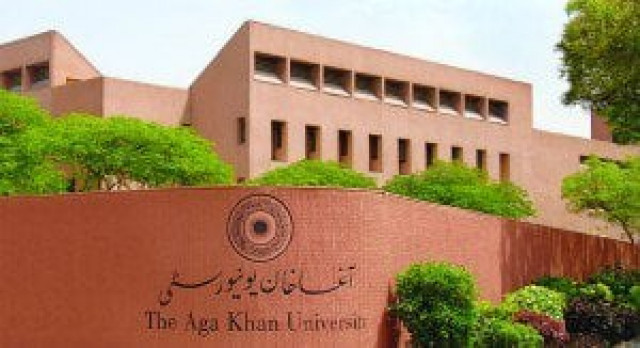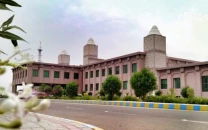'AI not replacing human intelligence'
Medical technology expert says AI tools transforming healthcare sector

The use of artificial intelligence (AI) has started to transform the healthcare sector in Pakistan, with Aga Khan University Hospital in Karachi leading the way.
Through the use of AI tools, accurate and early diagnosis of several complex diseases, as well as better treatment, has become possible. Aga Khan Hospital has adopted the use of AI as a crucial tool to transform healthcare delivery.
By utilizing predictive analytics, patient care is being ensured by preventing potential complications and enabling timely interventions.
AI tools are also aiding in analyzing large volumes of patient data, identifying diseases, and guiding personalised treatment plans. AI-powered imaging tools are helping detect irregularities found in X-rays, MRIs, and CT scans.
In an exclusive interview with The Express Tribune, Dr Saleem Sayani, Director of the Technology Innovation Support Centre at Aga Khan University, explained that the hospital has already begun utilising AI as a key tool to improve healthcare.
This tool collects and analyzes data of patients and their diseases, and assists in treatment planning. Additionally, it will support critical administrative tasks. He mentioned that AI will help in genomic analysis to propose treatments and medications based on genetic changes in a patient's blood cells.
He added that AI technology will also assist in improving the accuracy of robotic surgeries and reducing risks, while providing telemedicine services for patients in remote areas. This tool will enhance diagnosis and treatment.
Dr Sayani explained that AI would provide immediate information about patients' medications, helping in prescribing treatments. Regarding patient care, he further explained that AI will help detect any cancerous tumors in the body through radiology tools like X-rays, CT scans, and MRIs.
Similarly, AI technology will assist in the early detection of diseases, enabling better treatment planning. This technology will suggest personalised care plans based on the patient's medical history, genomic data, and medical guidance, ensuring evidence-based decisions tailored to individual needs.
He also highlighted that AI, through personalised data-driven learning experiences, will revolutionise medical education.
Using AI and Augmented Reality (AR), students will be able to practice surgical procedures or perform virtual diagnoses. AI has the potential to transform disease diagnosis, treatment, healthcare management, and even research in the medical field.
However, he emphasised the importance of considering the ethical, legal, and social implications for its implementation. Collaboration between medical experts and policymakers will be crucial for the effective use of AI.
It is noteworthy that while various institutions around the world have started working with AI technology in different sectors, no such initiative or informational framework regarding AI has been started at the governmental or institutional level in Pakistan.
According to the spokesperson for the Dow University, an institute for AI is being established at the university, in collaboration with the North America-based Dow College Alumni Association. The institute will begin admissions next year and will offer graduate programmes related to the use of AI.
Dow University will be the first to introduce AI-focused graduate programmes. The university's Vice Chancellor noted that AI is transforming the healthcare system and will bring further changes to the medical field.
He added that through AI, digital learning platforms, and telemedicine, the university's medical staff will be able to transform research and patient care methods.



















COMMENTS
Comments are moderated and generally will be posted if they are on-topic and not abusive.
For more information, please see our Comments FAQ